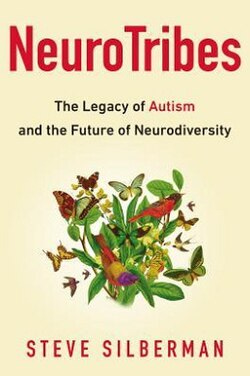Neurotribes by Steve Silberman
Read Andrew Solomon instead
Steve Silberman’s NeuroTribes is a popular history of autism, written in the narrative-journalism style. For a book about autism, though, this one sure isn’t very autistic. Silberman does the journalist thing of sprinkling in color commentary on every figure he profiles, weaving in personal anecdotes instead of sticking to general principles. It’s lively, but also bloated. (Did I really need to know that one lab assistant had curly hair and was into the Ramones?)
It’s also logically muddled. Silberman often argues by vibes, sometimes contradicting himself. For example, he traces the history of autism through 20th-century ideas about eugenics, but the discussion stalls because “eugenics” functions as a magical dirty word. Without stating it outright, Silberman relies on the shorthand “Eugenics = Nazi = Bad”, relying on our current knowledge of history that was yet to happen in the early 20th century. Never mind that Jewish researchers fleeing Nazi Europe (notably Leo Kanner and Bruno Bettelheim, two prominent autism researchers) still engaged with eugenic ideas. Or that many Westerners today hold what are, in practice, eugenicist views—the most obvious being selective abortion of disabled fetuses. All of this appears in the book, but Silberman never connects the dots, leaving the reader with a kind of argument-by-collage.
A more persistent slipperiness lies in how he blurs autism, the broader autistic phenotype (BAP), and plain old STEM disposition. At times he admits they’re different—acknowledging that while some prominent scientists may have been autistic, many others are only posthumously misdiagnosed. But elsewhere he implies that interest in STEM, or even logical reasoning itself, is inherently autistic. Sometimes he makes it sound like having any non-status-oriented interest is a sign of autism.
This is a serious problem for a book advocating recognition and accommodation of neurodiversity, because it’s never clear exactly what Silberman means. To be fair, the definition of autism did shift over decades. But he never lays out the diagnostic criteria over time, nor does he consistently clarify what level of functioning he’s describing.1
The book closes with a plea for acceptance: if given the choice between “curing” autism and keeping it, society should opt for the latter, lest science grind to a halt. But the trade-off is a straw man. It assumes it will never be possible to select against severe autism while preserving mild or subclinical traits—say, by screening for certain de novo mutations. While I’m no biologist, Silberman himself notes that severe autism often overlaps with intellectual disability and epilepsy. Wouldn’t selection against those be a plausible future path?
And yet, we do seem to love trade-offs. Even adults who’d swear they understand life isn’t fair are soothed by stories where the wealthy, brilliant man is hollow and corrupt, or the beautiful woman is secretly insecure and disordered. But life doesn’t demand balance. A person can be attractive, smart, scientifically gifted, rich, and loathe daylight saving time—without also having perceptual or social impairments. Surely such people exist.
At the same time, we hate trade-offs. Silberman acknowledges that raising a child with significant impairments can be difficult, but his examples make it sound remarkably easy, if only the parents are sufficiently accepting. Behavior modification is framed as discouraging flapping or spinning—never violence, self-injury, or public masturbation. Lack of acceptance is always prejudice. Lack of resources never stems from real constraints.
To be clear, I agree with him in part. Historically, disabled—or just unusual—children were often treated appallingly (many “treatments” amounted to “beatings will continue until morale improves”). And modern “cures” are typically both unproven and cruel. Accommodation is a far better approach.
But accommodation alone isn’t a panacea. Some behaviors are dangerous and must be curtailed. Some loneliness or social difficulty may be inevitable. Parents will face real challenges. Silberman seems to think that acknowledging these downsides would undermine his case for compassion, or perhaps that they’re already overblown in the public mind.
I disagree. Downplaying the real difficulties of autism weakens, rather than strengthens, the argument for understanding. Autism does sometimes involve profound impairments. And often, that’s simply bad. Why obscure this by conjuring a false trade-off?
Silberman might argue that “severe” vs. “mild” autism are inconsistent labels across a lifetime. True—but functioning level at a given time is still a meaningful, if provisional, distinction.


